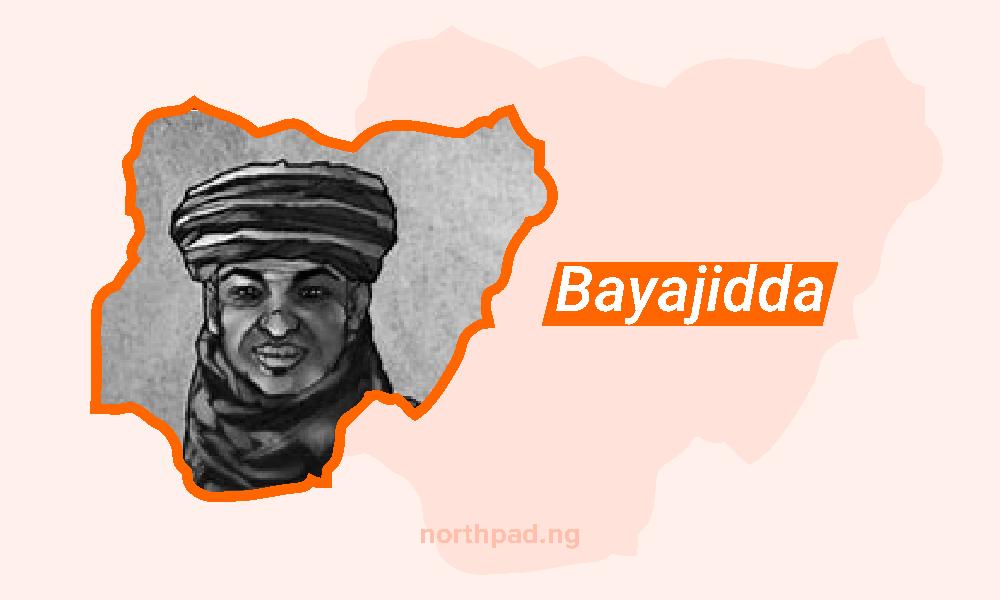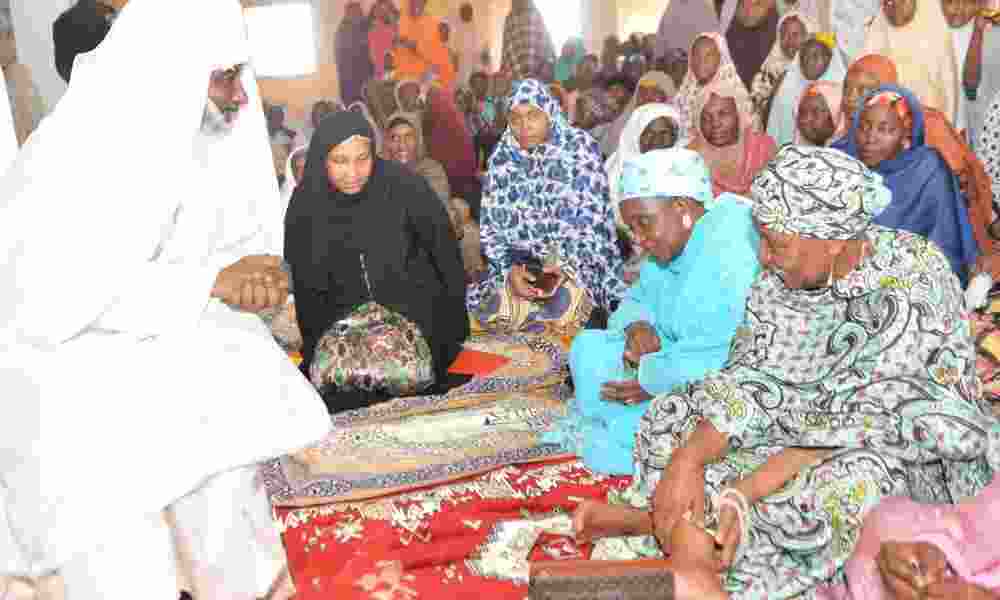Bayajidda is arguably the most unique story of the Hausa people, despite it being considered a legend by most historians. It takes a lot of weight knowing that this single individual has shaped the way the Hausa people view themselves as well as their common origin, myth or legend, the story of Bayajidda is indeed one that should be known.
Who is Bayajidda?
Early Life
Born Abuyazid (popularly called Abuyazidu) to the king of Baghdad Abdullah. However, not much is known about the origin of Bayajidda – being the dominant name of Abuyazid (translatable as ‘the father of Yazid). It is said that when Queen Zidam conquered Baghdad, Bayajidda fled Iraq with forty servants to enter Nigeria through Lake Chad by the town of Ngala and arrive in Gazargamu which is present-day Borno state.
Occupation
In the legend of Bayajidda, his occupation wasn’t the major crux of the story, but it can be understood that he enjoyed horse riding as well as hunting; as those were the tradition of most royals in that period.
Although his major occupation came much later in his life as he took the mantle of rulership in the city of Daurama, currently Daura of Katsina state.
When did Bayajidda Arrive Nigeria?
There are two stories as to what Bayajidda did when he arrived in Nigeria. In one story, when Bayajidda first came to Gazargamu (Borno state), having come from royalty with the technical know-how on warfare and people affairs, Bayajidda decided to dethrone as well as do away with the incumbent king he found at Gazargamu, seeing he had a superior force as compared to that of the king.
The news of this dethronement came to the king and he immediately consulted with his high chiefs and advisors and came to the conclusion that he should give Bayajidda his daughter, Magaram (also known as Magira) in marriage.
This in effect worked as Bayajidda didn’t go ahead with displacing the king. In later years, when the king made new conquests of new cities, he convinced Bayajidda to give up his men to put up guard in these new cities and this drastically reduced the men that Bayajiida had.
When Bayajidda had realized that he was being tricked by the king, it was already too late for him to react with force as he only had a slave with him, together with his wife. He then fled the city of Gazargamu at night with his wife and a servant heading westward to Garun Gabas of present-day Hadeja region in Jigawa state (east of Biram).
Marriage and Later Life
However, according to a different version of the story, when Bayajidda came to Borno, he was welcomed warmly, got married to Magaram and became popular with the people. Because of this new popularity, the king became envious of him and plotted against him; upon being informed of this by his wife, he fled Borno with her.
Whilst they were there, Bayajidda’s wife, Magaram, gave birth to their first child, Biram, the infamous leader of the small kingdom of Gabas-ta-Biram (east of Biram).
At Garun Gabas, he still feared for his life, and he sneaked out at night leaving behind his wife and servant to move further eastward to a place known as Gaya, presently known as Abajiyawa where the people of Kano are said to have originated from. Others however believe it is present-day Niger. There he found blacksmiths and directed them to cast him a sword similar to his previous, but which he lost on the way. After which he continued Northward.
Bayajidda’s Adventures in Daura
He then finally arrived at a place situated at present-day Daura which is located in Katsina State, where he entered the first house, which he had access to which belonged to an old woman called Ayana and asked for water. She informed him that a serpent named Sarki, kept guard at the well, only allowing people access to the well water once a week.
Because Bayajidda was so thirsty, she gave him a bucket to go fetch water at the well, with the risk of losing his life. He set out for the well and killed the serpent with his sword, which he beheaded, drank the water and kept the head in a bag. He returned to the old woman’s house.
The next day, it was a wonder in Daura as people saw the snake out of the well which meant the snake would terrorize the city. Magajiya Daurama was informed and she ordered to beat the drum called ‘Dajinjin’ to alert people to gather at the well to praise the snake and beg it to douse its anger to go back into the well.
As people converged at the well alongside Daurama, they all stood far from the well wondering what triggered it to be out of the well as no one dared to face the wrath of the dreaded beast. It was a man named Audi Indi who courageously moved closer to the well to assess the situation that found out the snake had been killed; this fetched Audi Indi the first-ever title of Kaura of Hausa land for his bravery.
All wondering who had killed the snake, Magajiya Daurama, offered sovereignty to over half the town to whoever could prove that they killed the snake. Hearing this, the old woman Ayana who had Bayajidda as her guest informed Daurama that it was her guest who had killed it.
Daurama summoned Bayajidda to support this claim and to present the snake’s head, which would prove to her that he was the one who had slain Sarki. After showing proof that he indeed killed the snake, she offered him half the town but he turned down the offer, instead, he requested for her hand in marriage, and she married him out of gratitude for slaying the serpent.
According to an oral palace version of the Bayajidda legend; it was against the then customs of the Daura people for the queen to marry, and Daurama made a compromise and said she would consummate the marriage later. This made her gift Bayajidda a concubine named Bagwariya, so as to give her time to undergo the ritual proceedings to break the vow of remaining unmarried.
How Bayajidda Founded the Hausa States
Later, with the queen of Daura, Bayajidda had a son called Bawo, which meant ‘Give it back’, which was in response to Bagwariya – Bayajidda’s concubine -who also had a son fathered by him which she named him Karaf da Gari, or Karbagari which means ‘snatch the town’ in Hausa, this worried Daurama.
In a version of the legend, Bawo is said to have succeeded his father and had six sons who became the rulers of Daura, Katsina, Zazzau, Gobir, Kano and Rano. These, together with his half-brother Biram, formed the ‘Hausa Bakwai’. In other versions of the legend, they leave Bawo and Magaram out entirely, with Biram, Daura, Gobir, Kano, Katsina, Rano, and Zaria all being the sons of Bayajidda and Daurama.
However, Karbagari the son of the Gwari mistress also had seven sons, who were said to have ruled Kebbi, Zamfara, Gwari, Jukun, Ilorin, Nupe and Yauri which are referred to as ‘Banza Bakwai’ or ‘Illegitimate seven’
The historical Hausa kingdom began as these seven states were founded by the Bayajidda legend and the six sons of Bawo and himself.
Legacy
It can be argued that one of the foremost legacies of Bayajidda is the memory left at the Kusugu well, which nowadays is a tourist attraction site.
Another major legacy of Bayajidda would be the forming of the Hausa states by him and his progeny.
When Did Bayajidda Die?
Not much if at all any has been reported on the death of Bayajidda, but from studies, it can be understood that he lived quite a long life.
Controversy Regarding Bayajidda’s Life
The major controversy in the Bayajidda Legend is to date the argument of historians as to the plausibility of the occurrence of such a figure, a major chunk of historians believe that he is just a mythical figure created to appease the Hausa folk, alongside the many inconsistencies in the folktale. All that is said about him has been through the word of mouth, with the only record and most authentic source on Hausa history which was done by the then Prince of Daura, Alhassan AbdurRahman as requested by his father, the then Emir of Daura AbdurRahman dan Musa.









A popular legend ,I read way back in primary School.northern scholars should do more to propagate this story;it defeats stereotypes.